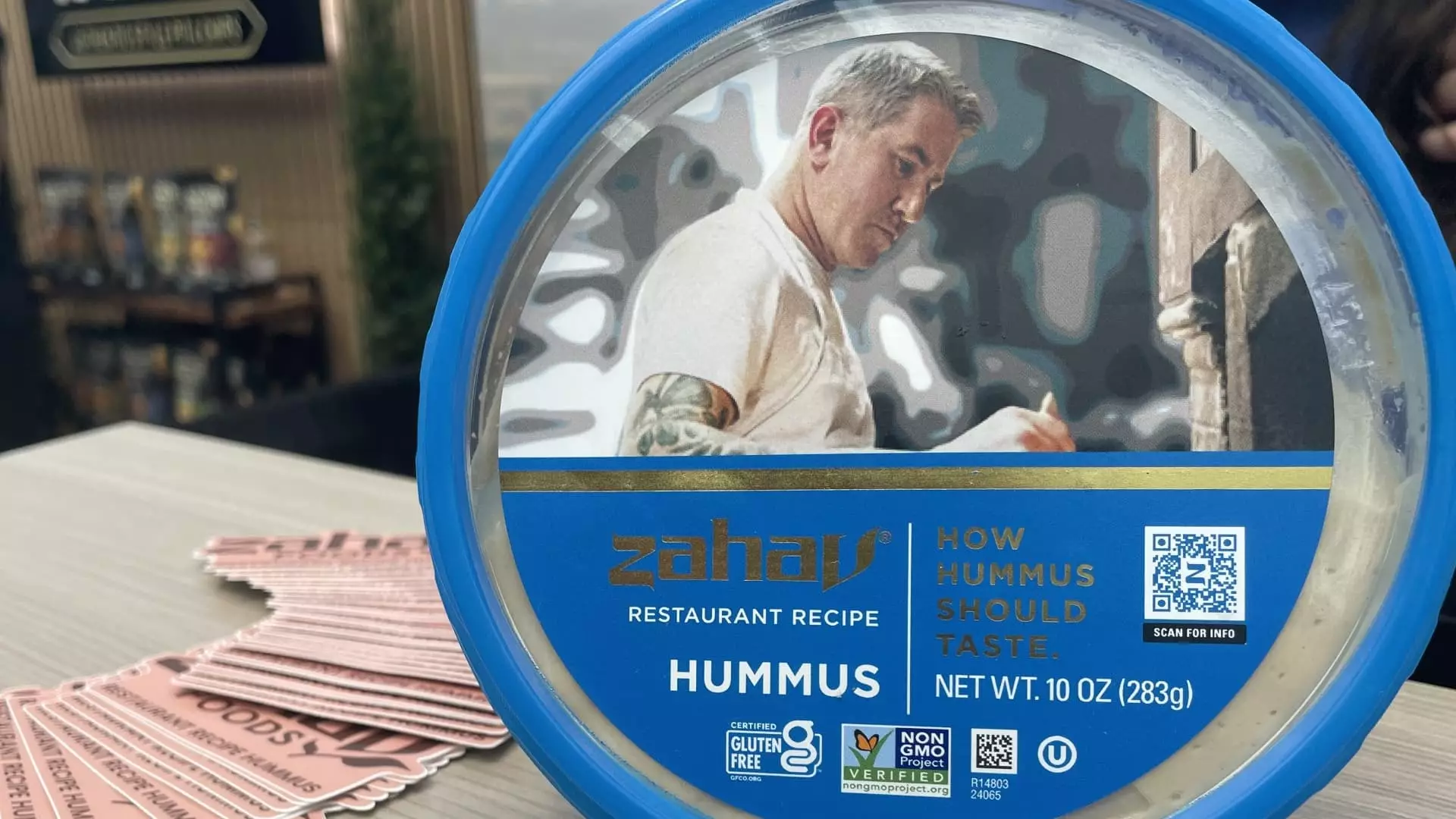The recent Summer Fancy Food Show showcased an obsession with novelty—an insatiable quest for the next big thing in gastronomic trends. However, a critical lens reveals that this obsession often masks an underlying superficiality. Food trends like “swicy”—a flavor fusion of sweet and spicy—dominate showroom floors, yet many of these fads are ephemeral, lacking the depth or cultural significance necessary for long-term sustainability. While this spectacle of innovation appears exciting, it often caters more to short-term curiosity than meaningful culinary evolution. True progress should stem from cultural awareness and a desire for authenticity, rather than simply capitalizing on fleeting social media sensations.
This focus on transient trends fosters a cycle of superficiality, where brands chase viral moments instead of prioritizing quality, tradition, or sustainability. For example, Dubai chocolate—an exoticized indulgence promising an experience rooted in decadence—was among the show’s fleeting curiosities. Such products often appear as marketing tricks rather than genuine contributions to the culinary canon. The industry’s obsession with “what’s hot now” risks undermining genuine culinary craftsmanship in favor of quick wins, diluting the artistry that has historically defined food innovation.
The Danger of Consumer Hype and the Lack of Cultural Depth
The commercialization of trends heavily driven by social media or celebrity endorsements presents a problematic narrative that equates popularity with quality. Take the so-called “fusion” ingredients like lavender-flavored honey or vinegar infusions that, while intriguing, often lack a substantive culinary tradition behind them. These products tend to be surface-level experiments that may prove popular in the moment but rarely contribute to meaningful flavor development or cultural appreciation.
Moreover, companies display the superficiality of trend-following by emphasizing “Instagrammability” over culinary integrity. This approach nurtures a food culture obsessed with aesthetic appeal rather than nutritional value, flavor complexity, or cultural significance. The industry’s fixation on short-lived fads diminishes the importance of food as a reflection of cultural heritage and societal values. When products like Dubai chocolate enter and exit the market so quickly, it exposes a lack of rootedness in culinary history—a dash of novelty for novelty’s sake rather than a step toward building culinary legacy.
Commercialization over Sustainability and Cultural Appreciation
Part of the problem lies in the commercialization of food innovation, where marketing often outpaces culinary worth. Companies at the show often launch products designed to appeal to a quick cycle of hype, rather than cultivate a true understanding of ingredients or cooking techniques. This commodification risks reducing food to its trendiness rather than its cultural roots and nutritional value. The obsession with infusions, exotic ingredients, and viral sensations contorts the industry into a spectacle that often overlooks the importance of sustainable sourcing, ethical practices, and authentic cultural dialogue.
For instance, the resurgence of plant-based products, once heralded as enviro-friendly solutions, now seems less about sustainability and more about perpetuating a health-conscious consumer culture—one that conveniently aligns with liberal ideals advocating for ethical consumption. Yet, the decline of booths dedicated solely to plant-based innovation signals that the market has yet to fully embrace long-term, sustainable practices over fleeting consumer trends. The focus should be on fostering technology and cuisine that respect biodiversity, support local economies, and honor culinary traditions for genuine, lasting impact.
A Critical Look at Food “Revolution” and Market Dynamics
The industry’s narrative of “innovation” frequently disguises a lack of critical engagement with the societal implications of food choices. The recent trend towards trendy condiments, infused oils, and hybrid products like “swicy” or “Slawsa,” forms part of a broader spectacle that often prioritizes the next viral hit over nutritional coherence or cultural depth.
This obsession with novelty neglects the importance of food education that fosters a nuanced appreciation for heritage, tradition, and the health implications of dietary choices. For instance, while beef tallow may seem like a nostalgic return for some, it raises questions about environmental impact and health, which are often sidelined amidst the hype. When industry actors tout these products as “healthy” or “alternative” solutions without addressing underlying ethical or ecological concerns, they perpetuate a superficial narrative that benefits corporate interests rather than genuine societal well-being.
In fact, the focus on hype creates a distorted market landscape, where brands are more interested in capturing consumer attention than in contributing to a balanced, sustainable food ecosystem. This disconnect risks turning food into a commodity driven by trend cycles, stripping it of the cultural richness and ecological responsibility essential for meaningful progress.
Moving Beyond the Surface: Embracing Authenticity and Cultural Responsibility
To truly innovate, the food industry must move past superficial trends and cultivate a culture of authenticity. This entails supporting local artisans, respecting culinary traditions, and emphasizing transparent sourcing. It requires industry leaders and consumers alike to prioritize quality over novelty, sustainability over fleeting social media appeal, and cultural appreciation over mere trendiness.
Instead of chasing ephemeral fads, the focus should be on fostering culinary innovations rooted in cultural understanding and ecological sustainability. A responsible approach involves nurturing culinary practices that honor heritage, support local economies, and promote health and environmental integrity. This shift necessitates a conscious reevaluation of what constitutes true innovation—one that appreciates depth over spectacle, authenticity over aesthetics, and sustainability over short-term profit.
By resisting the urge to chase after every new viral ingredient or trend, the industry has the opportunity to set a new standard—one rooted in genuine culinary exploration, cultural respect, and social responsibility. It’s time to question whether the focus is on meaningful progress or just a glamorous façade crafted for social media likes and quick consumer gratification. Only through this critical lens can food evolve into an instrument of cultural dialogue, ecological sustainability, and authentic innovation.


Leave a Reply